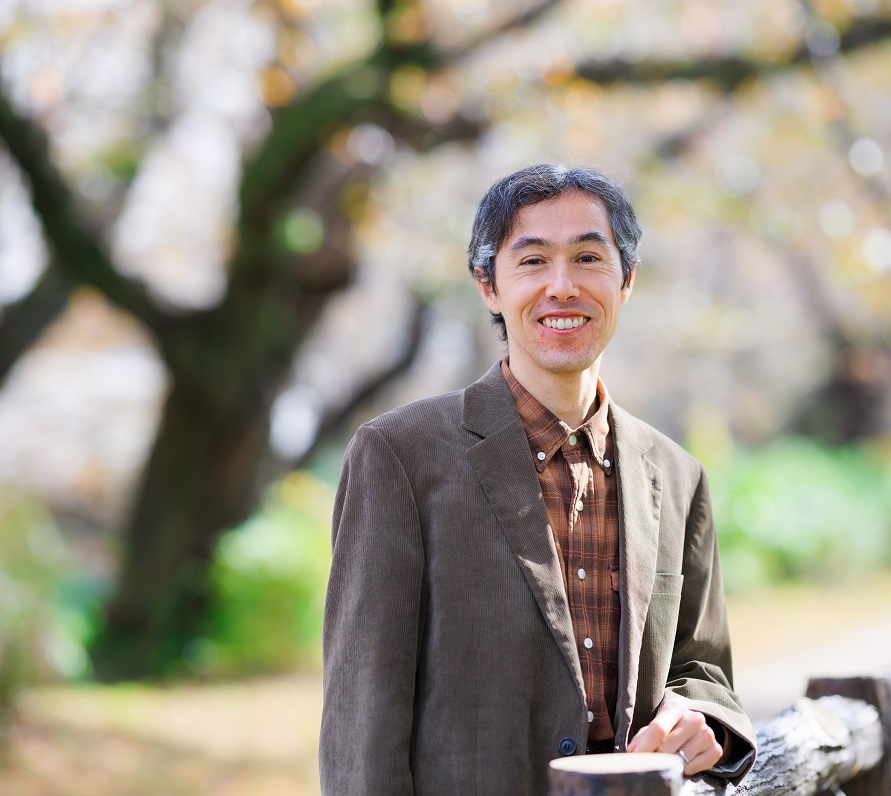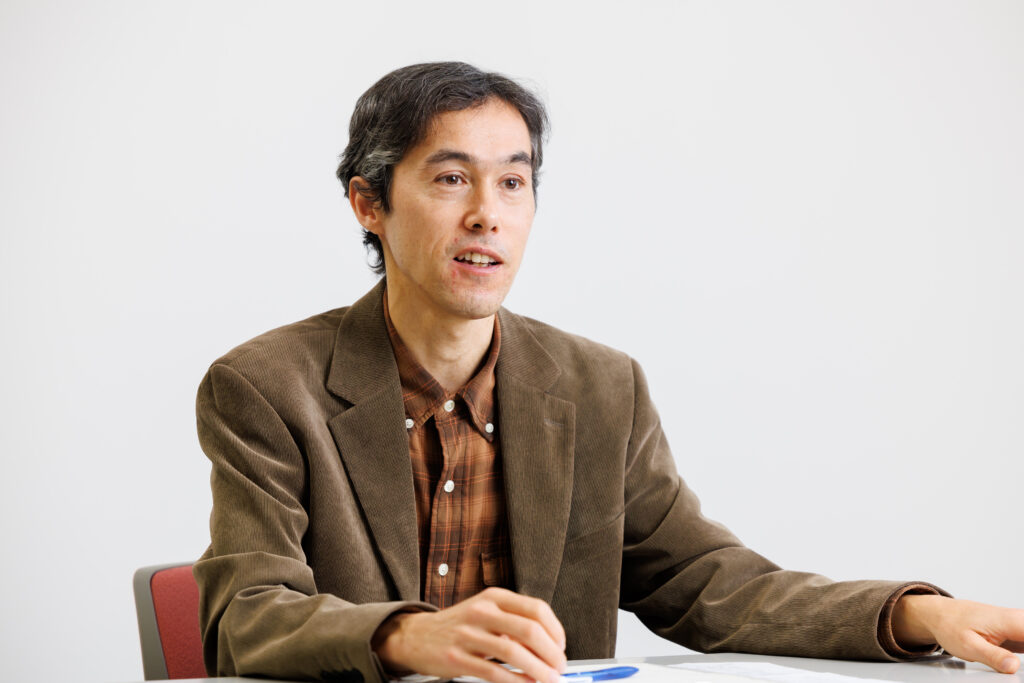
Professor Kimura Goro Christoph of the Faculty of Foreign Studies researches the most effective methods of communication between people who speak different languages. What are the merits to the several communication methods that his research has identified? What is the significance of speaking in a manner that is easy to understand?
When speaking to someone of a different language, typically we speak in their mother tongue or in ours if the situation allows. If this is not possible, then we use languages such as English that are widely understood, we hire interpreters, or we resort to machine translations on our smartphones and other devices. It might also happen that each party speaks in their own language, or that both parties use a mixture of their respective languages.
Each method has its advantages. Speaking in a shared language that is the mother tongue of neither party places each speaker on an equal footing; speaking in the mother tongue of the other party makes it easier to forge close relationships. In my research, I investigate the characteristics of such interlingual communication, and seek to identify optimal forms of communication.
I chose this line of research in part because I have both Japanese and German ancestry. As a child, I spoke German at home and Japanese outside the house—and I recognized that communication methods came in diverse forms.
Just as the atmosphere of tasting tea changes depending on the vessel it is drunk from, so even if the content that we wish to communicate remains basically the same, we can alter the way it is received by the other party by using different communication methods in different circumstances. I found this extremely interesting—and it aroused in me a desire to research the various ways in which the gap between different languages can be bridged.
Carefully observe people with high communication skills

My research methods revolve around carefully observing situations in which actual communication takes place. People who are adept at communicating with people of different languages utilize multiple modes of communication, and I observe these high-level communicators conversing with people of different languages.
After observing them, I verify when they switched from one mode of communication to another—when, for example, they switched from direct dialogue to the use of interpreters. Where pertinent, I also ask the speakers why they switched to another method at any particular moment.
When you observe large numbers of people, you begin to see common patterns. For example, people tend to think that conversations with consecutive interpreters take longer than those without; however, the reality is that the use of interpreters sometimes aids mutual understanding—because when using our native tongues, we can think things through more carefully, or choose more accurate forms of expression. The use of interpreters can therefore be a great advantage, and this is one of the reasons why even people who are skilled at speaking English choose to rely on interpreters at certain moments.
Communication skills are more important than native-like pronunciation and grammatical correctness
At a town on the border between Germany and Poland, where people communicate on a daily basis across the state border, which is also a linguistic border, I investigated how they communicated with each other, and I learned that they used a various methods including a mix of the two languages, German and Polish, to engage in smooth dialogue. However, when I discussed this with the locals, they were unaware that this was what they had been doing. My research was even picked up in the local newspaper and radio.
Interlingual communication skills are essential in the Japanese context as well. For example, many foreign visitors to Japan want to try conversing in Japanese, and so there is a focus at present on forms of Japanese that are easily understood to foreigners. In places with a mix of nationalities, greater importance is placed on intelligibility, which is how easily the common language is comprehended by the participants, rather than on native-like pronunciation or grammatical correctness. Going forward, I hope to research optimal forms of such easy-to-understand Japanese and English, and contribute to the fields of language education and language policy.
The book I recommend
“Kotoba to kokka”(Language and the state)
Katsuhiko Tanaka, Iwanami Sinsho

This sociolinguistic work charts the history of how languages, which originally varied in each region, were linked to the nation state. Times have changed, and many languages are now increasingly spoken in a trans-regional or transnational manner. One of my research goals is to summarize the “diversity of interlingual communication”—something which was not covered by this book.
-
KIMURA Goro Christoph
- Professor
Department of German Studies
Faculty of Foreign Studies
- Professor
-
Graduated from the Department of German, Faculty of Foreign Studies, Tokyo University of Foreign Studies. Received his Ph.D. from the Graduate School of Language and Society, Hitotsubashi University. After working as a lecturer at the Keio University Faculty of Policy Management, and as an associate professor at the Sophia University Faculty of Foreign Studies, assumed his current position in 2011.
- Department of German Studies
Interviewed: November 2022